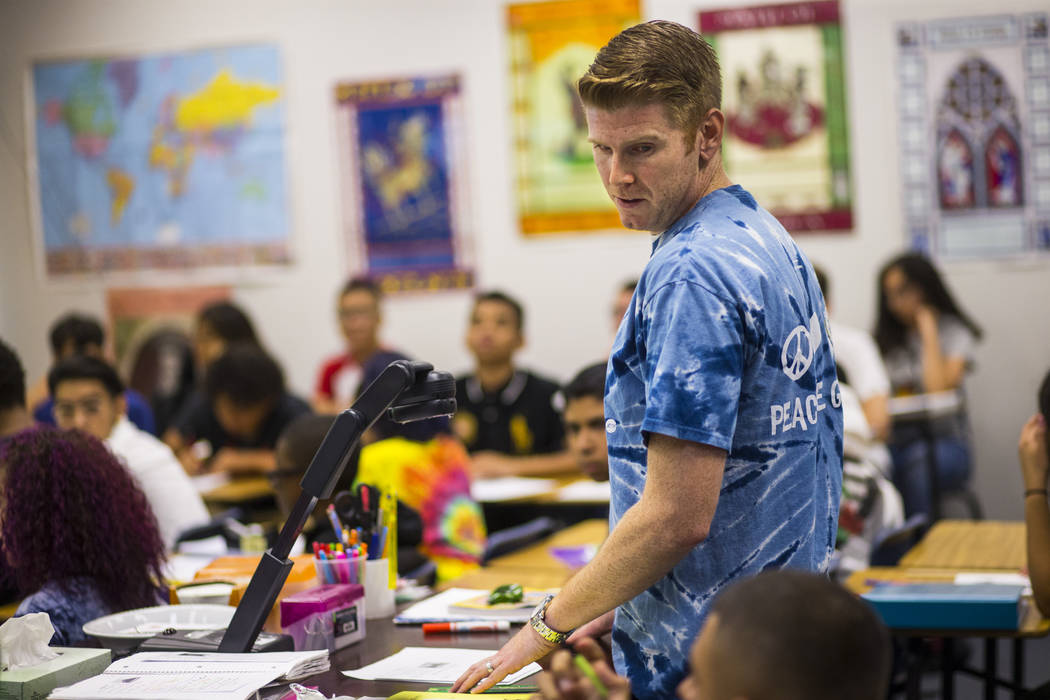EDITORIAL: The minimum F deserves a real F
Nevada ACT scores inched higher for the class of 2018. State educational officials, accustomed to so much bad news, no doubt breathed a sigh of relief. But let’s keep the Dom Perignon corked.
The average Nevada score on the college admission test — where perfection is 36 — crept to 17.5, up from 17.4 the preceding year. Improvement, yes … but it remains at the bottom of the barrel nationally. In addition, the results continue to reveal that the great majority of Nevada high school graduates receive their diplomas despite being completely unprepared for college-level work in four core subject areas — English, math, science and reading.
The situation is especially troubling in mathematics, given the realities of a rapidly evolving high-tech economy.
The average Nevada math score in the latest round of testing was 17.8, up from 17.6. But that’s far below the 22 mark necessary to be considered competent enough to succeed at the university level. Just 22 percent of state students achieved that plateau — the national average was 40 percent.
Juxtapose these ACT results with the Sunday Review-Journal article by Amelia Pak-Harvey detailing how the Clark County School District allows schools to employ a so-called “minimum F” grading policy. The system, used in some form in about a quarter of district high schools, ensures students receive no worse than a 50 on a scale of 0 to 100 — even if they don’t do any work.
Defenders of the policy — including, sadly, a handful of district principals — offer all manner of illogical and lame excuses as to why this deception is in the best interest of the students. In fact, it’s a blatant effort to rig achievement numbers by artificially suppressing failure rates and boosting graduation statistics.
“Minimum F” grading rewards sloth and indifference and is an affront to students — particularly high achievers — who come to school to actually learn. It devalues district diplomas as simply a more cynical and dangerous version of the participation trophy.
“For someone to not do anything and still get a grade put into the grade book … it doesn’t hurt me,” West Career and Technical Academy sophomore Arianna Ophir said. “But it kind of makes me look at the other people and (think), ‘Well, should I be working as hard to get a grade?’”
Nevada policymakers have been vocal about trying to attract high-tech investment. They will fail utterly if the state’s largest school district can’t turn out enough college-ready graduates. Slowly rising ACT scores represent a step forward, but high school grading policies such as “minimum F” serve as an anchor and should be abandoned.

















